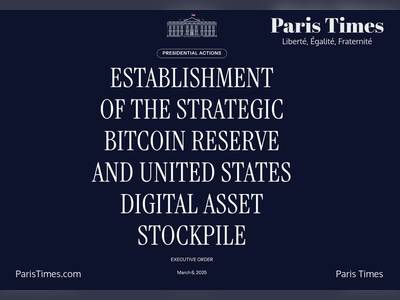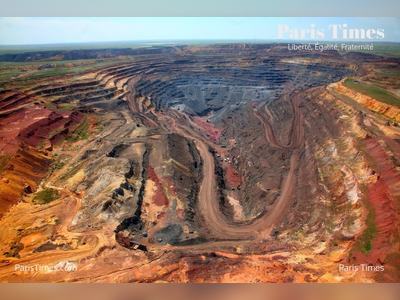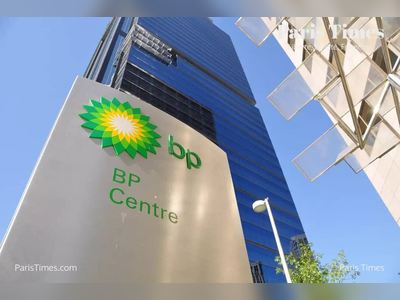Macron to Visit Greenland Amid Rising Arctic Tensions
French President Emmanuel Macron's June 15 visit highlights European support for Greenland amid U.S. territorial ambitions.
French President Emmanuel Macron is scheduled to visit Greenland on June 15, accompanied by Danish Prime Minister Mette Frederiksen, in a bid to showcase 'European unity' in the face of U.S. threats regarding the mineral-rich Arctic territory.
The leaders will engage in discussions focused on Arctic security, economic development, climate change, and energy matters, as stated in a release from Frederiksen’s office.
This visit is set against the backdrop of U.S. President Donald Trump's persistent suggestions to annex Greenland, asserting it is crucial to counter Russia and China’s increasing military presence in the Arctic.
Recent statements from Frederiksen reflected concerns over pressure from the United States, indicating that Greenland and Denmark have faced 'unacceptable pressure' from their closest ally.
Macron's trip will make him the first foreign head of state to visit Greenland since Trump’s remarks.
The visit follows a narrow approval (212-198) by the French parliament on June 5 for possible military support for Denmark in response to U.S. assertions regarding the territory.
This parliamentary vote underscores the increasing attention being paid to Greenland’s geopolitical significance.
The Danish Prime Minister expressed appreciation for the international support received for Greenland and the Kingdom amid recent foreign policy challenges, describing Macron's visit as a significant demonstration of unity within the European community.
In May, Greenland’s Foreign Minister, Vivian Motzfeldt, traveled to France to formally extend an invitation for Macron to visit the island.
Greenlandic media had speculated on the impending visit, reinforcing the anticipation surrounding this diplomatic engagement.
The strategic importance of Greenland has surged in recent years due to the melting of polar ice caps, leading to increased interest in new maritime routes and access to untapped natural resources, including rare earth minerals and potential oil reserves.
The territory's proximity to North America and Russia also plays a critical role in national security considerations, with Greenland being on a key missile trajectory to Russia.
As discussions surrounding Arctic policies continue among Nordic countries, unity against any form of territorial encroachment has been emphasized, particularly in meetings held among Iceland, Finland, Norway, Denmark, and Sweden.
At a meeting on May 26 in Turku, Finland, leaders from these nations reaffirmed their solidarity with Greenland and Denmark against U.S. annexation ambitions.
To counteract potential U.S. advances, Denmark has pledged two billion euros to strengthen security in the Arctic region.
Concurrently, French Foreign Minister Jean-Noël Barrot has suggested that the deployment of European troops to enhance security in the Arctic is a potential option to be explored, although immediate action is deemed unnecessary for Copenhagen.
Following a naval mission in the vicinity, two French military vessels traversed near Greenland for Arctic operational familiarization, responding to the growing strategic interests in the region.
Greenland, comprising about two million square kilometers and covered predominantly by ice, serves as a critical point in the evolving geopolitical landscape of the Arctic.
The leaders will engage in discussions focused on Arctic security, economic development, climate change, and energy matters, as stated in a release from Frederiksen’s office.
This visit is set against the backdrop of U.S. President Donald Trump's persistent suggestions to annex Greenland, asserting it is crucial to counter Russia and China’s increasing military presence in the Arctic.
Recent statements from Frederiksen reflected concerns over pressure from the United States, indicating that Greenland and Denmark have faced 'unacceptable pressure' from their closest ally.
Macron's trip will make him the first foreign head of state to visit Greenland since Trump’s remarks.
The visit follows a narrow approval (212-198) by the French parliament on June 5 for possible military support for Denmark in response to U.S. assertions regarding the territory.
This parliamentary vote underscores the increasing attention being paid to Greenland’s geopolitical significance.
The Danish Prime Minister expressed appreciation for the international support received for Greenland and the Kingdom amid recent foreign policy challenges, describing Macron's visit as a significant demonstration of unity within the European community.
In May, Greenland’s Foreign Minister, Vivian Motzfeldt, traveled to France to formally extend an invitation for Macron to visit the island.
Greenlandic media had speculated on the impending visit, reinforcing the anticipation surrounding this diplomatic engagement.
The strategic importance of Greenland has surged in recent years due to the melting of polar ice caps, leading to increased interest in new maritime routes and access to untapped natural resources, including rare earth minerals and potential oil reserves.
The territory's proximity to North America and Russia also plays a critical role in national security considerations, with Greenland being on a key missile trajectory to Russia.
As discussions surrounding Arctic policies continue among Nordic countries, unity against any form of territorial encroachment has been emphasized, particularly in meetings held among Iceland, Finland, Norway, Denmark, and Sweden.
At a meeting on May 26 in Turku, Finland, leaders from these nations reaffirmed their solidarity with Greenland and Denmark against U.S. annexation ambitions.
To counteract potential U.S. advances, Denmark has pledged two billion euros to strengthen security in the Arctic region.
Concurrently, French Foreign Minister Jean-Noël Barrot has suggested that the deployment of European troops to enhance security in the Arctic is a potential option to be explored, although immediate action is deemed unnecessary for Copenhagen.
Following a naval mission in the vicinity, two French military vessels traversed near Greenland for Arctic operational familiarization, responding to the growing strategic interests in the region.
Greenland, comprising about two million square kilometers and covered predominantly by ice, serves as a critical point in the evolving geopolitical landscape of the Arctic.











